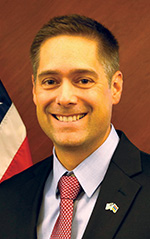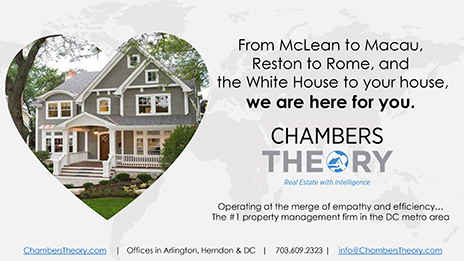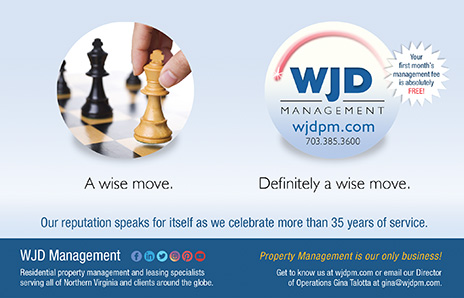The Diplomat and the State
Speaking Out
BY CHRISTOPHER W. SMITH
Speaking Out is the Journal’s opinion forum, a place for lively discussion of issues affecting the U.S. Foreign Service and American diplomacy. The views expressed are those of the author; their publication here does not imply endorsement by the American Foreign Service Association. Responses are welcome; send to journal@afsa.org.
Diplomacy is as old as the profession of arms, but not as well understood in the United States. The sheer size of the U.S. military, when compared to the Department of State’s Foreign Service officer corps, numbering just 8,000 officers, helps explain why Americans are more familiar with the armed forces than the U.S. Foreign Service.
It is also true that military officers have been more active and effective in defining to the public who they are and what they represent than their diplomatic counterparts. In particular, publications by and about military personnel have helped articulate and communicate their profession’s values, meaning and code of ethics to their fellow Americans.
A classic example of this type of writing is Samuel Huntington’s seminal work, The Soldier and the State. Published in 1957, the book is a foundational text in the U.S. professional military education system for the study of civil-military relations. Huntington’s central point is that the “modern military officer corps is a professional body, and the modern military officer is a professional.” To prove this, Huntington examines military officership as a profession: “a peculiar type of functional group with highly specialized characteristics.”
Diplomacy is also a profession, of course, and the modern Foreign Service officer corps is a professional body. Applying Huntington’s characterization of what defines a profession to the Department of State’s Foreign Service officer corps, I will make recommendations on how the U.S. diplomatic profession can better define itself, bolster its institutional strength at a transformative period in international affairs, and improve key audiences’ understanding of the vital, unique role diplomats play in achieving U.S. national security objectives.
What Is the Profession of Diplomacy?
In his book, Huntington asserts that “the distinguishing characteristics of a profession as a special type of vocation are its expertise, responsibility and corporateness.” To apply these characteristics to the profession of diplomacy, we must first define its essential function. If we accept Huntington’s contention that the “central skill of the military officer is best summed up in Harold Laswell’s phrase ‘the management of violence,’” then what is the central skill of the U.S. diplomat?
The essential skill of U.S. diplomats is the management of power to achieve foreign policy and national security objectives.
Toward this end, diplomats manage the full spectrum of U.S national power— “soft” power, by representing and defending our democratic and humanitarian values abroad, or managing exchange programs for future foreign leaders; “sharp” power, by making the case for sanctions against states and individuals that violate U.S. and international laws; “smart” power, by supporting counterparts in foreign countries seeking to reform their political and economic institutions and fight corruption in line with Western best practices; and “hard” power, in working with the military and the interagency community to deter and, if necessary, defeat threats to the United States, its allies and partners.
The unifying thread across these and many other potential examples, is the management of U.S. national power in the conduct of the nation’s foreign affairs, which is the primary function of Foreign Service officers.
Acquiring Expertise
The professional is an expert with specialized knowledge and skill in a significant field of human endeavor. (Their) expertise is acquired only by prolonged education and experience.
—Samuel Huntington
Diplomacy requires expertise, subtlety in application, and the refined ability to assess the interests and influence the decisions of foreign states and the individuals through whom diplomats work to accomplish U.S. objectives.
Unfortunately, there is a persistent impression that anyone can do foreign policy, while according to Huntington, military officership is seen as “an extraordinarily complex intellectual skill requiring comprehensive study and training.” Novices need not apply. Simultaneously recognizing and contributing to this perception, the military requests from Congress a tremendous amount of resources to educate and train its officers.
Military officers also apply significant time, energy and rigor in defining the tenets and application of their craft to themselves and key external audiences. This is an area where the Foreign Service could replicate the military’s approach to great effect, first and foremost by dedicating greater research and scholarship by FSOs to the study of diplomacy as a profession.
Some steps have been taken, including the 2017 establishment of the State Department’s Center for the Study of the Conduct of Diplomacy. This new office’s mission to analyze recent diplomatic initiatives and events to create case studies for tradecraft training is a good start. To reach its full potential, however, we must move beyond case studies into the realm of professional education and professional doctrine to guide and instruct our officers in the conduct of their missions.
Expanding Training and Research
The liberal education of the professional is normally handled by the general educational institutions of society devoted to this purpose. The technical or second phase of professional education is given in special institutions operated by or affiliated with the profession itself.
—Samuel Huntington
Expanding professional education and research opportunities at the Foreign Service Institute goes hand-in-hand with the need to develop official doctrine regarding the conduct of diplomacy.
The U.S. military model boasts a formalized system of professional military education (PME) encompassing multiple service academies and officer candidate programs to train incoming officers, as well as the Command and Staff Colleges and War Colleges that train intermediate and senior officers, conduct research on military campaigns and study the profession of military officership.
In sharp contrast, the State Department has only the Foreign Service Institute. While FSI devotes considerable resources to language training, offering courses lasting up to two years for certain hard languages, and has been working on expanding leadership training, tradecraft training is limited; and, overall, professional education is limited by comparison to the PME system.
Former Secretary of State Colin Powell mandated leadership training for FSOs at all ranks, an important first step that has improved leadership competency in the ranks.
Still, newly promoted FSOs at the FS-3 level receive just a week’s training at FSI to prepare them for this new level of leadership, typically in classes taught by contractors with no experience in the Foreign Service. Their military equivalents can expect to spend a year in training for their new position in an equivalent rank (major), where they are instructed by active-duty, subject matter experts from their service.
Functional skill training also needs to be expanded. Political officers, for example, receive just three weeks of required training (split between political and economic tradecraft) before deploying abroad. By comparison, the U.S. Army’s basic infantry officer training course at Fort Benning lasts 17 weeks. FSI offers a range of other optional courses on political and other issues, but given demands on their schedules, most officers can manage only the three weeks of required training before heading off to their assignments.
FSI should be transformed into a College of Diplomacy with the in-house expertise to study (and teach) the profession of diplomacy, while examining current and future foreign policy challenges through a “war game” center. This unit could be directed by the Secretary, the policy planning staff (S/P) and other senior department figures to game out strategies and events, with a particular focus on great-power competition with Russia and China.
This approach will not only greatly improve the opportunities for FSOs and visiting academics to study the history and modern conduct of diplomacy; it will also uncover options for the resolution of existing and future diplomatic challenges, in order to develop long-term strategies to meet them.
Creating Standardized Doctrine
To move from training to professional education, we need a system for creating standardized doctrine in the essential areas of focus for FSOs. What functional training FSOs do receive at FSI, which more senior officers impart, lacks this key component. Political officers, for example, have no official handbook on conducting multilateral diplomacy, or operating effectively in conflict and transition countries, or even carrying out the basics of contact work and drafting reports.
In complement to the departmentwide “Professional Ethos,” the Foreign Service officer corps should begin developing more detailed (and officially endorsed) doctrine for FSOs on our core values, code of professional ethics and tradecraft. This is an essential element highlighted by Huntington of most, if not all, professions—from the military officer corps to medical doctors.
Some may contend that the Department of State’s Foreign Affairs Manual fills that role as the “single, comprehensive and authoritative source for the department’s organization structures, policies and procedures.” But while the FAM provides administrative and regulatory guidance, it does not cover what is needed: the principles, concepts and informed professional guidance that make up true doctrine.
What is needed: the principles, concepts and informed professional guidance that make up true doctrine.
By comparison, officially endorsed doctrine not only guides military officers in the conduct of their missions, it ensures that the professional military education they receive is derived from the experiences and wisdom of the officer corps itself. In the words of a military scholar at West Point: “Army doctrine is defined as the fundamental principles by which the military forces or elements thereof guide their actions in support of national objectives. … It is a body of thought … and a statement of how the Army intends to fight.”
The Foreign Service officer corps has no codified, official doctrine. Instead, FSOs rely on oral traditions to pass values, lessons learned and tradecraft from senior officers to those they supervise and mentor. This practice, which benefits those who are lucky enough to serve good leaders (and disadvantages those who aren’t), is not sufficient for a modern, professional Foreign Service.
This lack of professional doctrine, which should be developed by the professional diplomatic corps itself, leaves our officers poorly prepared for their missions and prevents us from further developing a professional education system.
Professionals Are Experts, Not Generalists
To help advance training and research, and to develop professional doctrine, FSOs should work with State to define ourselves as experts instead of generalists.
A “generalist” in the Foreign Service prioritizes knowledge of multiple countries and regions of the world along with a proficient understanding of bilateral, regional, multilateral and global issues, rather than developing true expertise on a particular region, country or functional issue.
A look back at the contributions of some of America’s greatest diplomats, however, emphasizes the value of expertise. George Kennan, for example, wrote the “Sources of Soviet Conduct” (better known as the “X” article) in 1947. This transformative analysis of Russian motivations, which built the intellectual foundations of the containment strategy that saw the United States through the Cold War, was based on Kennan’s deep understanding of Russia, its language, culture and people—expertise derived through repeated tours in the region and career-long study.
In its generalist approach, the U.S. Foreign Service is an outlier in the world of diplomacy, particularly when compared to our great power competitors. Chinese and Russian diplomats can expect to spend their entire careers working on a single country, or a small group of related countries united by language or shared regional history, with the specific objective of gaining unique knowledge and expertise.
Focusing on developing the level of expertise achieved by Kennan and many other predecessors would increase our relevance and influence in the bureaucratic politics of the interagency community. Without professional, regional and linguistic mastery and a network of long-term foreign contacts, a “generalist” misses out on what should be an FSO’s singular comparative advantage in the policy debate.
Join the Public Foreign Policy Discourse
To play a role in shaping policy, FSOs need to join the academic and public discourse on U.S. foreign policy priorities, particularly in this new era of great-power competition with China and Russia. Published research and writing by military officers exploded during the wars in Afghanistan and Iraq, and helped reorient Washington toward more effective counterinsurgency strategies.
Diplomats played, and still play, important roles in those counterinsurgencies on the ground, yet our voices went comparatively unheard in the public analysis that examined what worked and what didn’t in the midst of those campaigns. Contributions to our Foreign Service Journal are vital to this dialogue, but many other periodicals and blogs would welcome greater input from FSOs.
Besides participating in public policy discussions, FSOs need to better communicate their under-recognized commitment and patriotism, and the responsibility they take for their work that helps define diplomats as professionals.
We need to better inform Americans of the risks diplomats voluntarily undertake to serve our country. Like their military counterparts, U.S. diplomats must be deployable worldwide, including in conflict zones.
All of the positions in Iraq, Afghanistan, Pakistan, Libya and other conflict zones have been filled by FSOs who chose to serve there, despite the fact that these embassies are some of the largest and most dangerous in the world. The American Foreign Service Association’s memorial plaques at State Department headquarters list the honored names of those killed in the line of duty in war zones and regular service across the globe.
Congress and other audiences would likely appreciate the opportunity to better understand the challenges our diplomats and their families face and the kind of work we do on a daily basis. The State Department could do much more to highlight the impact FSOs are making in war zones and across the globe in achieving U.S. foreign policy and national security objectives.
A formal department program to encourage FSOs to write about their successes and challenges for publication is one suggestion. Another would be to invite congressional leaders and policymakers and opinionmakers to the Department of State’s annual award ceremony, and AFSA’s, to see FSOs recognized for their extraordinary achievements, often obtained in harrowing circumstances.
The State Department should encourage diplomats to write and publish as widely as possible (with the obvious disclaimer that their views are their own). Admittedly, the Foreign Service values discretion by nature, so this will take some cultural change. But such initiatives are essential to defining and communicating who we are as diplomats, and articulating the unique principles and tradecraft that underpin our profession.
Professionalizing for Great Power Competition
As we gear up for what will likely be a decades-long competition with Russia and China, FSOs must be at the top of their professional game. Convincing Congress and the American people to provide funds to strengthen the U.S. Foreign Service will require us to define what we bring to the field of battle.
We can begin this process by investing more in defining our profession, enhancing our professional education and inserting ourselves into the national foreign policy debate. U.S. military officers’ approach to their own profession offers FSOs an excellent model.
What Samuel Huntington said in 1957 of the military officer corps is equally true of today’s U.S. Foreign Service: “[It] is strongest and most effective when it closely approaches the professional ideal; it is weakest and most defective when it falls short of that ideal.” The proposals in this article are offered in the spirit of getting us there.




